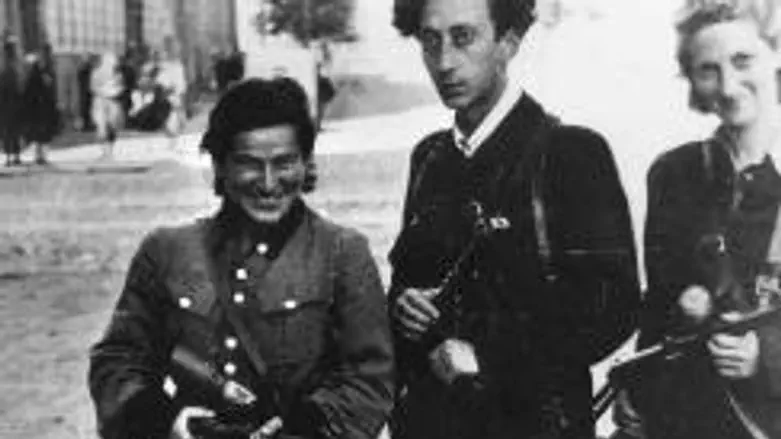
The Knesset Aliyah Committee on Monday saluted female veterans of World War II in honor of International Women's Day and as its opening commemoration of the 65th anniversary of victory over Nazi Germany.
Committee chair Knesset Member Leah Shemtov and Absorption Minister Sofa Landver, both of the Yisrael Beiteinu party, hosted veterans, who attended wearing their medals.
More than 30,000 Jewish women took part in the battle against the Nazis. Roman Gal, president of an organization representing war veterans, described to the committee how one of the women fighters saved him from the Nazis.
Among the women who fought the Nazis were Underground fighters, although they often have been described as “courier girls.”
Previous accounts of the Jewish uprising tended to focus on men, partly because women who wrote of their experiences played down their own role, and partly because men who wrote of the uprising ignored their female counterparts.
Historians have noted that young women were leaders in almost every Polish Ghetto underground movement and influenced decisions from the beginning of the German occupation of Poland. Women also led Jewish youth movements, and they often were delegates or emissaries because of not having to be subject to the "circumcision test” that Nazis performed to try to identify Jews at checkpoints.
However, many women also fought, often in auxiliary fields such as communication, logistics and first aid but also in combat as the Nazi death machine advanced. Several women served as commanders in the Warsaw uprising. Rozka Korczak was the commander of an important position in the Vilna Ghetto and Vitka Kempner-Kovner led small units on railway sabotage operations in the Vilna Ghetto and the forests. Zivia Lubtekin led the escape through the sewers from the burning Warsaw Ghetto.